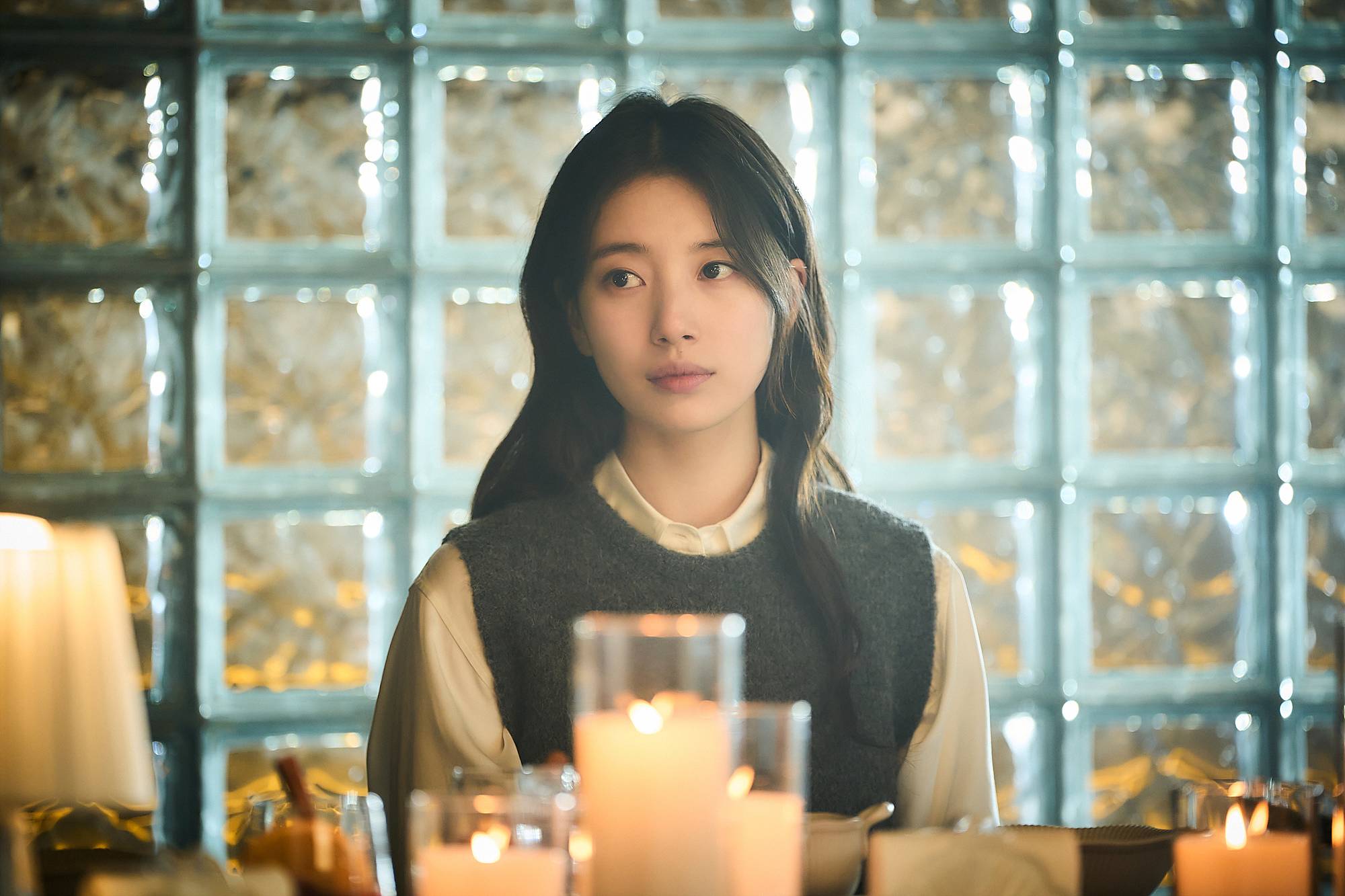Seven O’Clock Breakfast Club for the Brokenhearted
Sil-yeondanghan salamdeul-eul wihan ilgob si jochanmoim
VERDICT: South Korean rom-com royalty Bae Suzy and The Squid Game star Lee Jin-wook descend on Busan with the slick, subdued and fastidiously chaste 'Seven O’Clock Breakfast Club for the Brokenhearted'.
Neither the audacious huis clos as suggested by the title, nor as subversive as the Françoise Sagan novel that was relentlessly bandied about on screen, Seven O’Clock Breakfast Club for the Brokenhearted offers a melange of strikingly tasteful imagery, rote relationship drama and affected performances from its A-list cast. Korean filmmaker Lim Sun-ae’s latest outing harks back to the sweetly innocent big or small-screen romances – Christmas in August, say, or Autumn in My Heart – which kick-started the Korean Wave in the late 1990s.
Acclaimed for her hard-hitting social drama An Old Lady (2019, about a raped pensioner’s pursuit for justice) and then the fin-de-siècle comedy Ms Apocalypse (2023, which premiered at the Fantasia International Film Festival in Montreal in 2023), the academy-trained Lim has pivoted to yet another genre with Seven O’Clock Breakfast Club for the Brokenhearted. Bowing in competition in Busan, the film is sufficiently suave and mild-mannered to serve as proof of the cineaste’s ability to helm a pleasant, commercial vehicle anchored by squeaky clean superstars.
Compared to her previous work, however, Seven O’Clock Breakfast Club is akin to a meal comprising cold but Instagram-friendly tartines and ersatz coffee served in minimalist mugs. Featuring Bae Suzy as a young woman at once mourning a recent break-up and also coming to terms with her childhood trauma of being abandoned by her adulterous father, Lim’s film is a parade of pretty people and chic commodities in lush landscapes, delivered through Lee Jin-geun’s pristine camerawork and a surprisingly unintrusive score from Korean hip-hop musician Primary. What’s lacking is a spark that could awaken the characters from their lovelorn lethargy.
Bae plays Sa-gang, a flight attendant trying to recover from an affair with a married pilot (Yoo Ji-tae from Oldboy). Driven to distraction by her lover’s omnipresence at work and also the endless copies of Bonjour Tristesse popping into her mailbox – Sagan, the French writer, was what the pair talked about during their first meeting – Sa-gang signed up for a mysterious event in which people are invited to meet over breakfast and part with a memento from their past relationship.
So we see Sa-gang finding her way to the minimally designed venue before dawn, disposing of her much-detested (and largely unread) Sagan novels at the reception, and sitting down alongside perhaps maybe a dozen other people around a large round table for some haute cuisine. Overwhelmed by her emotions, Sa-gang stands up and leaves, picking up another “heartbreak souvenir” – a miniature Rollei camera – by random on her way out.
As she ponders over the photographs she obtains by developing the roll of unfinished film in the camera, the narrative leaps backwards in time and shifts to the perspective of its owner Ji-hun (Lee Jin-wook). A sprightly human resources consultant who peppers his motivational speeches with references to Russian literature and the like, the man is actually weighed down by the end of a stale long-term relationship with a girlfriend (Keum Sae-rok) and his duty of care towards his autistic elder brother.
Egged on by a well-meaning colleague, Ji-hun ends up joining that early-morning breakfast but leaves in a huff after finding his ex-girlfriend sitting and eating just a few seats from him. It’s hardly a surprise that he would grab the Bonjour Tristesse books as he exits – the start, no less, of the two protagonists’ frantic search for each other, and the development of a pure and dreamlike friendship built on an accidental night out (over nothing stronger than udon and sake) across the streets of Tokyo.
While the food and the postcard settings might indeed be salivating, the relationship between the characters are much less so. Driven by timeworn tropes of tragic characters weighed down by their parents’ marital problems or their loved ones’ illnesses, Seven O’Clock Breakfast Club never really breaks out of the refined mannerisms which might appeal to a certain young and middle-class demographic. Hemmed in by the stifling narrative, Bae and Lee cut a spectral presence throughout and standing in stark contrast to the more intense interactions they had in the Netflix TV series Doona!
Director: Lim Sun-ae
Screenwriter: Jung Yi-an, Lim Sun-ae, based on the novel by Baek Young-ok
Cast: Bae Suzy, Lee Jin-wook, Yoo Ji-tae, Keum Sae-rok
Director of photography: Lee Jin-geun
Editor: Park Se-young
Production designer: Kim Hee-jin
Music composer: Primary
Sound designer: Lee Seong-jun
Production companies: W/A Studio, WUSIWYG Studios, SOOP Entertainment
World sales: KT Studiogenie
Venue: Busan International Film Festival (Competition)
In Korean
108 minutes






